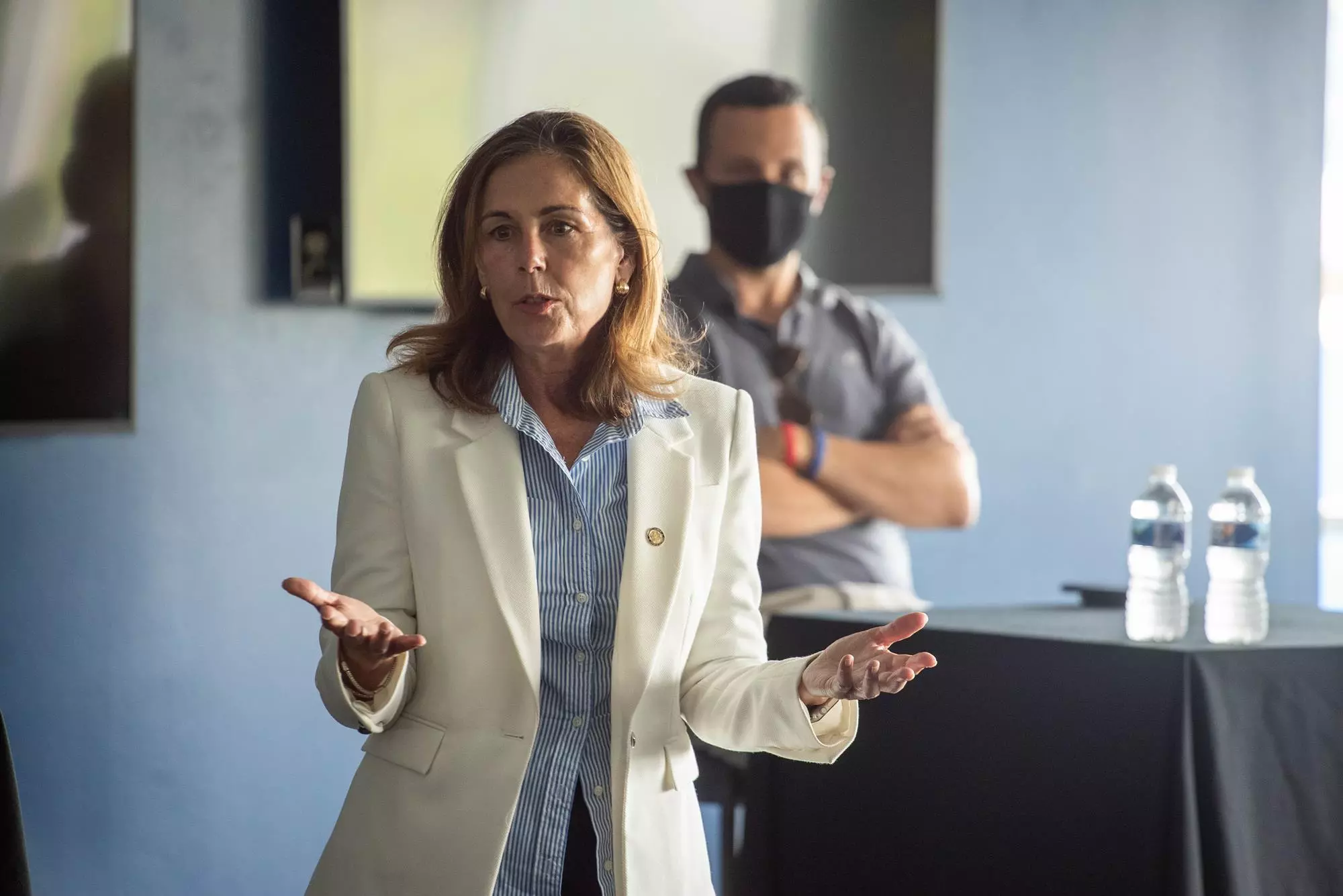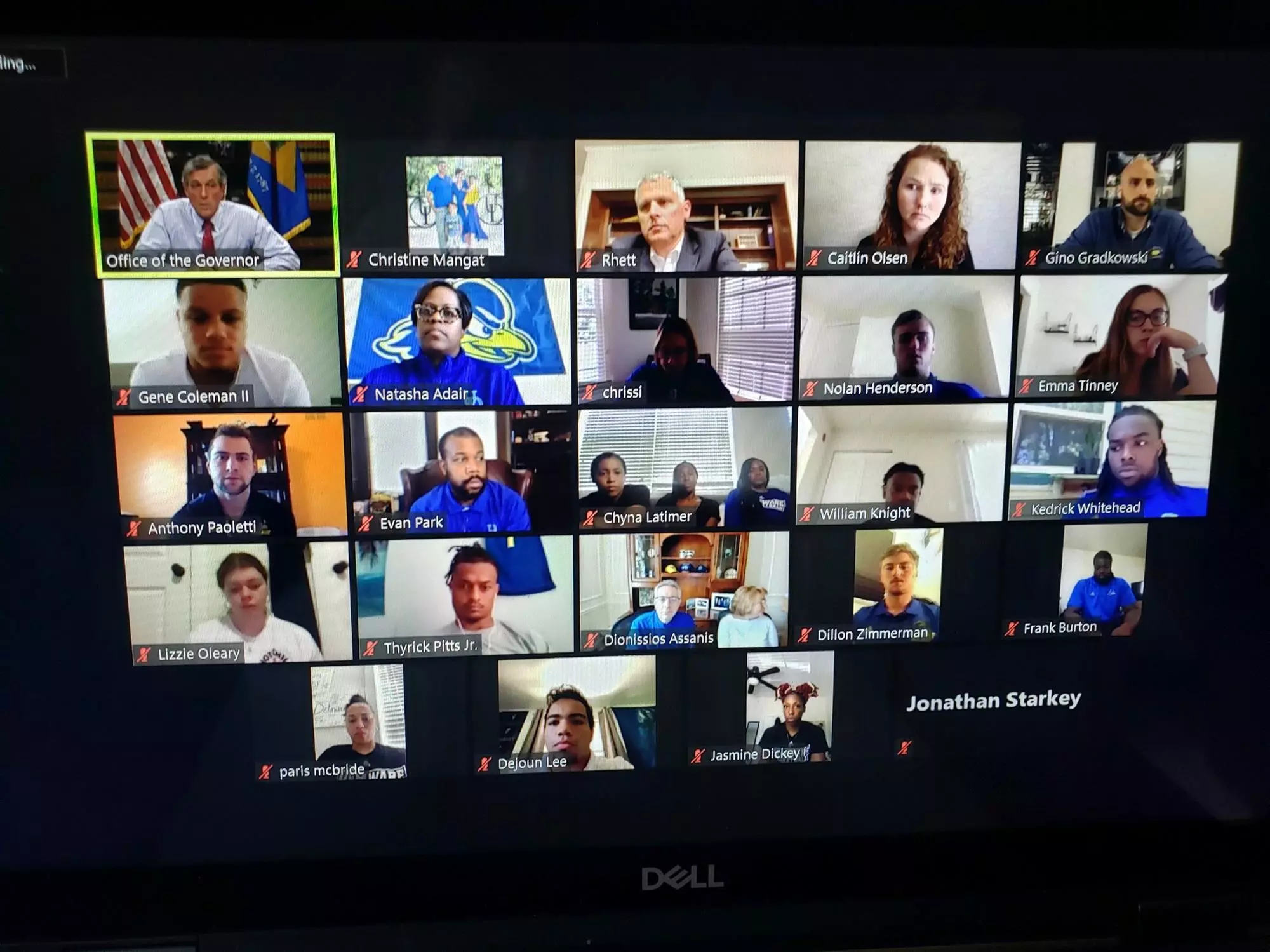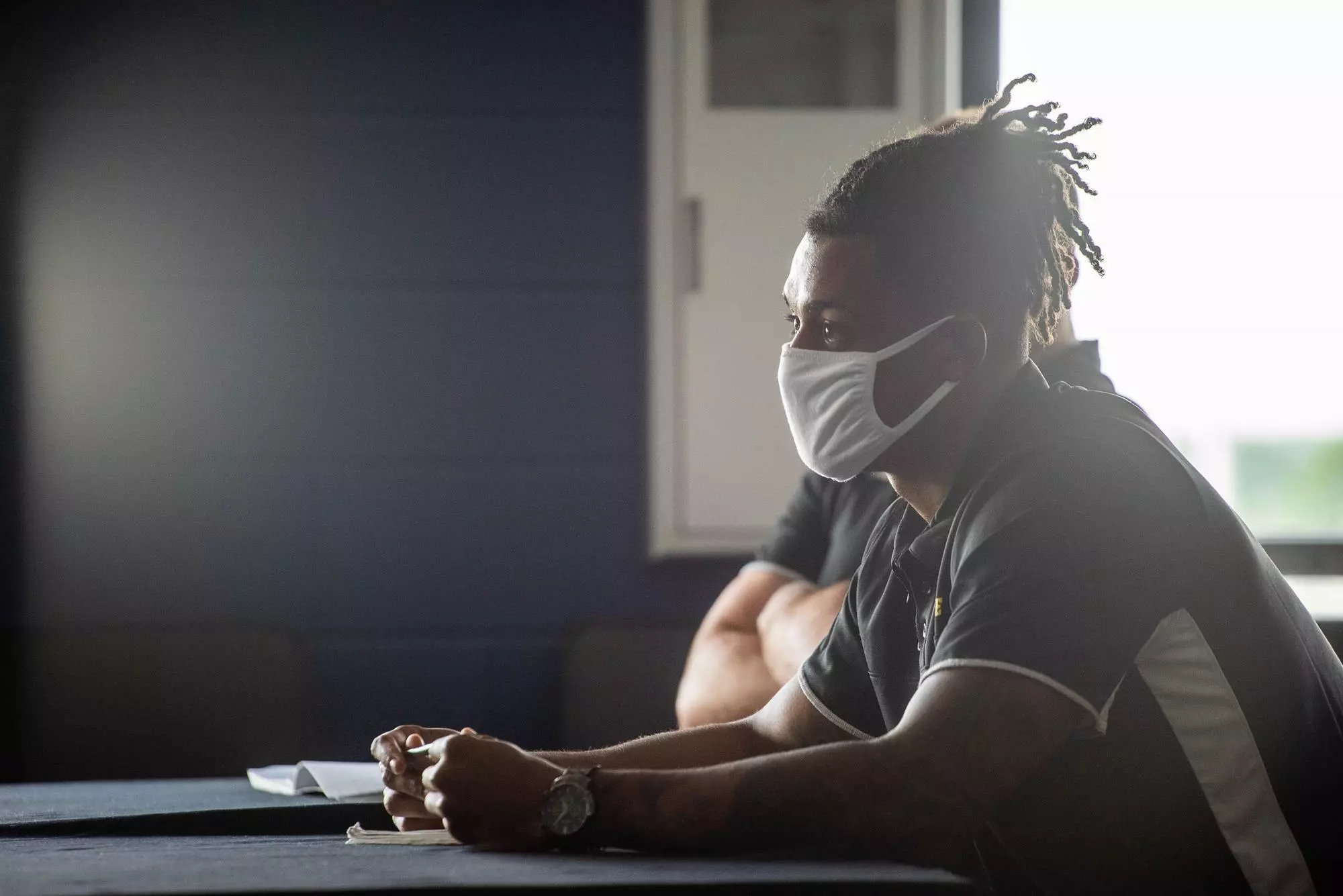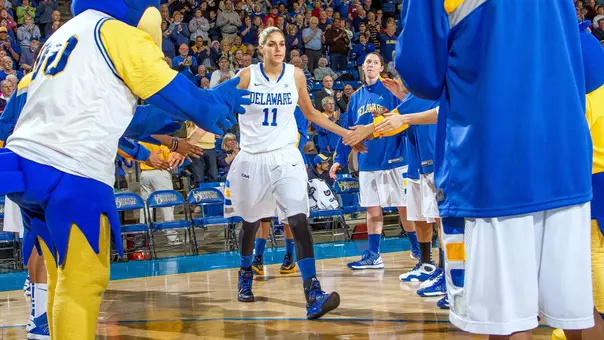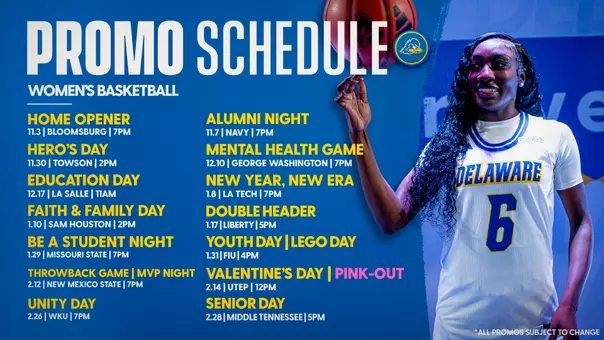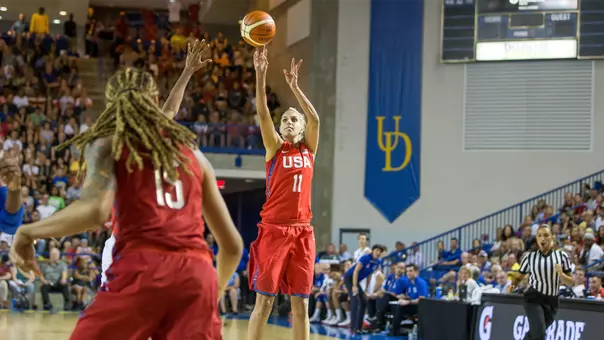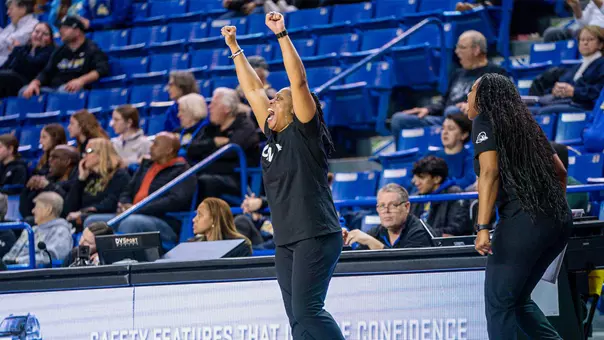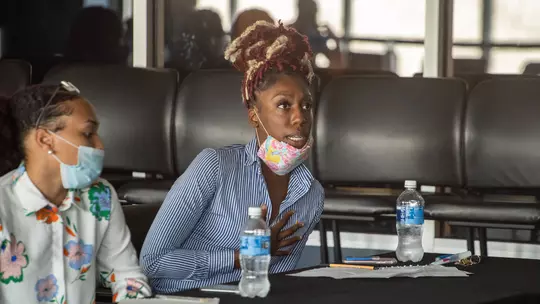
Blue Hens Lead The Way For Positive Change In Their Community
Andy Lohman
7/2/2020
In the wake of the killing of George Floyd that sparked worldwide outrage and protests, Delaware women’s basketball head coach Natasha Adair knew she needed to bring her team, a diverse group of young women, together.
Over a Zoom meeting, she posed two questions. The first: how are you feeling?
Confused. Sad. Hurt. Angry.
The second: what do you need from us as coaches and what do you need from each other?
“Support” was a common refrain, but one answer stood out from the others – direction.
In a historic moment of social activism, the members of Delaware women’s basketball did not want to sit idly by; they wanted to be a part of a positive change to make their community a better place to live.
“Obviously because of the murder of George Floyd, but it’s bigger than that. I think we were just tired and enough was enough,” rising junior guard Paris McBride said. “As student-athletes, we have a platform, and we can actually use it and benefit from it.”
Because everyone’s lives are not valued the same, and because black people in particular are dying and suffering at disproportionate rates at the hands of police brutality, justice systems, healthcare systems, education systems, housing systems, economic systems, and just about every system you can think of, we have to fight in order to prove that our lives simply matter. As a black woman, with a black father, a black mother, black brothers, black sisters, black cousins, aunts, uncles, and black friends, it breaks my heart knowing that George Floyd, Breonna Taylor, or any of the other thousands of black people that have been murdered by the police could have very easily been myself or someone I love had we been in the wrong place at the wrong time. Enough is enough and I hope and I pray that we can all stand up against injustice and systemic racism and not allow this to continue.Redshirt sophomore forward Lolo Davenport
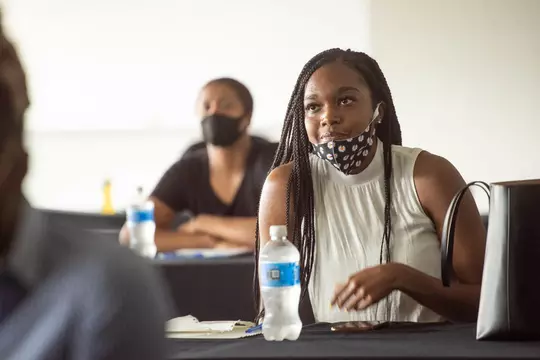
Inspired by some of her friends outside the team, McBride offered the idea to write a letter to mayors across the state of Delaware calling for reforms. The Blue Hens crafted a document that, among other things, called for more thorough psychological examinations when hiring police officers, a ban on chokeholds and the type of restraint that killed Floyd, and funding for bodycams for officers.
“They did the research to find out this information to be able to put it in a letter. Once they put that letter together, every player on the team signed it,” Adair said. “Once I got that letter, I had to hold back my tears, just very proud.”
“I think it was important, and honestly I feel like everybody else can agree, just to have our voices heard,” rising junior guard Jasmine Dickey said. “Let other people know that we are fighting for this and we are not going to be quiet about it.”
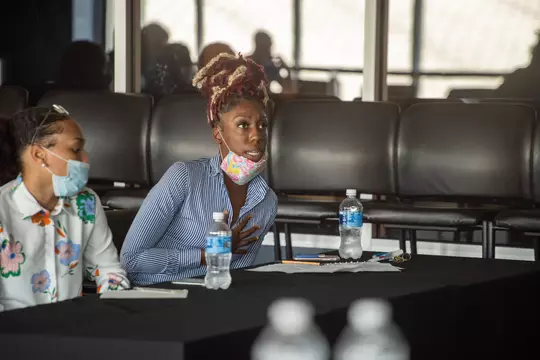
Adair passed the letter on to Director of Intercollegiate Athletics and Recreation Services Chrissi Rawak, who tasked Gino Gradkowski, the Assistant Director for Student Services Leadership, with making sure the letter got in front of UD’s government and community relations team. Those connections led to a meeting on June 24, where the women’s basketball team was joined by athletes from football, volleyball and swimming & diving at a face-to-face meeting with the Attorney General of Delaware, Kathy Jennings. John Carney, the Governor of Delaware, also spoke to the group via Zoom.
“We were giving them our ideas and how we want to fix things, and they were listening,” McBride said. “And they gave us great feedback.”
“[Carney] gave us great feedback on how the system works. [Jennings] was telling us about her experiences, and telling us how they’re going to incorporate everything that we’re saying,” Dickey said. “They were great; gave us a lot of useful information.”
The next day, Carney signed Executive Order #41, which bans the use of chokeholds by State of Delaware law enforcement agencies, increases community engagement, requires additional de-escalation and implicit bias training, and increases the availability of crisis intervention services for law enforcement officers. The Delaware General Assembly passed a bill banning chokeholds on the same day.
The Blue Hens know the chokehold ban is just a small step in the change they want to see, but it’s an important and empowering step nonetheless.
“It was a big opportunity for all of us to be like, ‘we took part in that change,’” Dickey said. “You know, it’s only up from here.”
“Just to know that we had meetings with people in power, and we were pushing for this law and it actually happened is exciting,” McBride said. “And it’s something to look forward to. If one thing can get done, many more things can be done.”
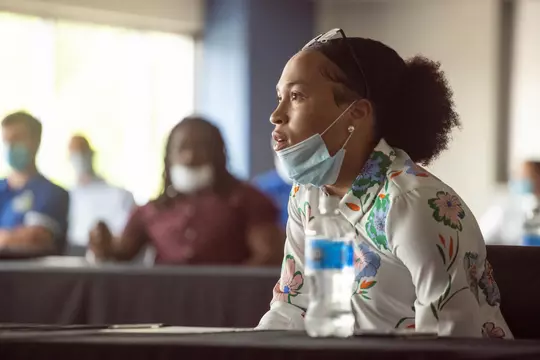
While the Delaware student-athletes were happy with the executive order, they’ve learned through this process that affecting lasting change is a long and arduous process. In response, they’ve formed a task force of athletes, coaches and administrators with the intent of remaining involved when the next legislative session begins in January.
For Adair, the experience of the past few weeks, especially when Rawak reached out to join her in a march in Middletown, has underscored the strength of the culture of being a Blue Hen.
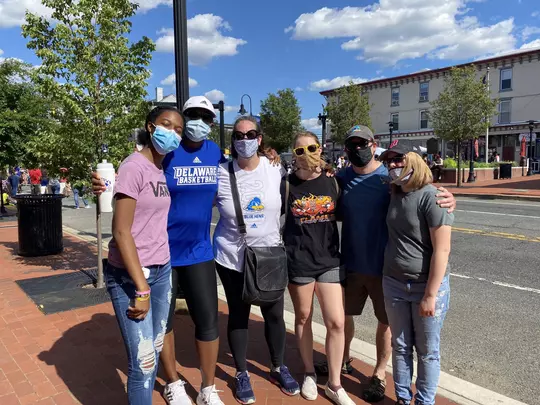
“When I walked two weeks ago here in Middletown, [Rawak] had texted me and asked me if I was going to be protesting. I wasn’t sure at the time, but I said I’m going to go and she said I want to walk with you,” Adair said. “I don’t look at that as a photo op because I know her to the core. And for her and her family to come to be with my family and walk together, that’s bigger than anything that you could imagine. And we didn’t have to say a word, just her presence.”
That spirit applies to the women’s basketball locker room as well.
“The culture of our team, I think we support each other no matter what,” McBride said. “No matter your race or where you come from. You’re my teammate, you’re family, so we’re going to support each other through it all.”
After their meeting with the governor and attorney general, Adair once again posed a question to her team during a Zoom meeting - how are you feeling? The prevailing answer was a different one than before: hopeful.

